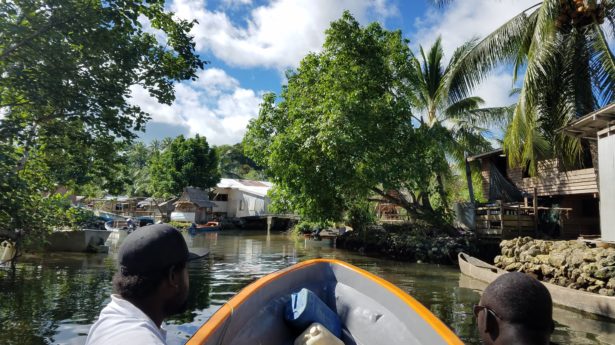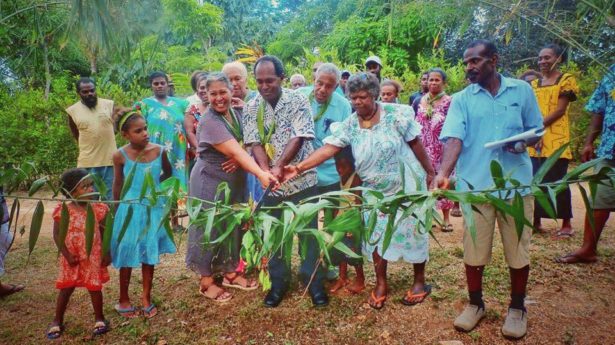The Unitarian Universalist Service Committee advances human rights through grassroots collaborations.
Listening with Our Heads and Hearts
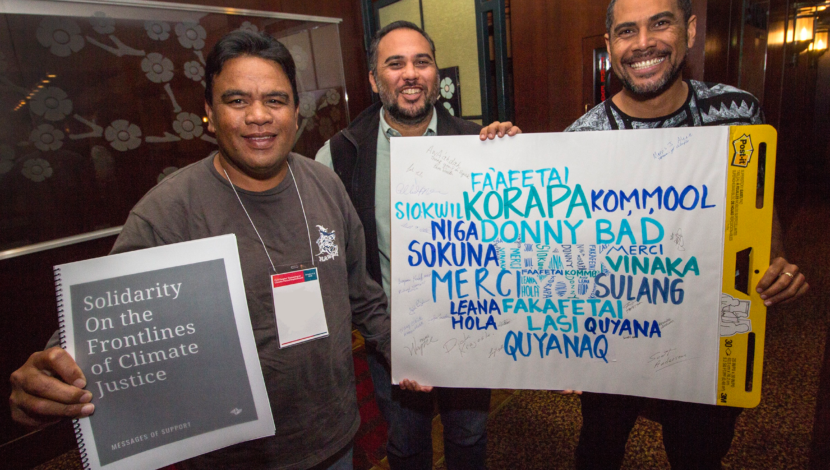
By Mike Givens on October 11, 2018
The climate-forced displacement convening, held over four days this month, united more than 60 advocates and community leaders impacted by the disastrous effects of climate change.
The First Peoples’ Convening on Climate-Forced Displacement welcomed Native people from more than two dozen communities in Alaska, Bangladesh, Louisiana, the Pacific Islands, and Washington State. The Anchorage Unitarian Universalist Fellowship warmly welcomed all of the participants and even provided transportation, warm jackets, and other forms of support for attendees. Much thanks to our Anchorage UU colleagues for their warmth, hospitality and support!
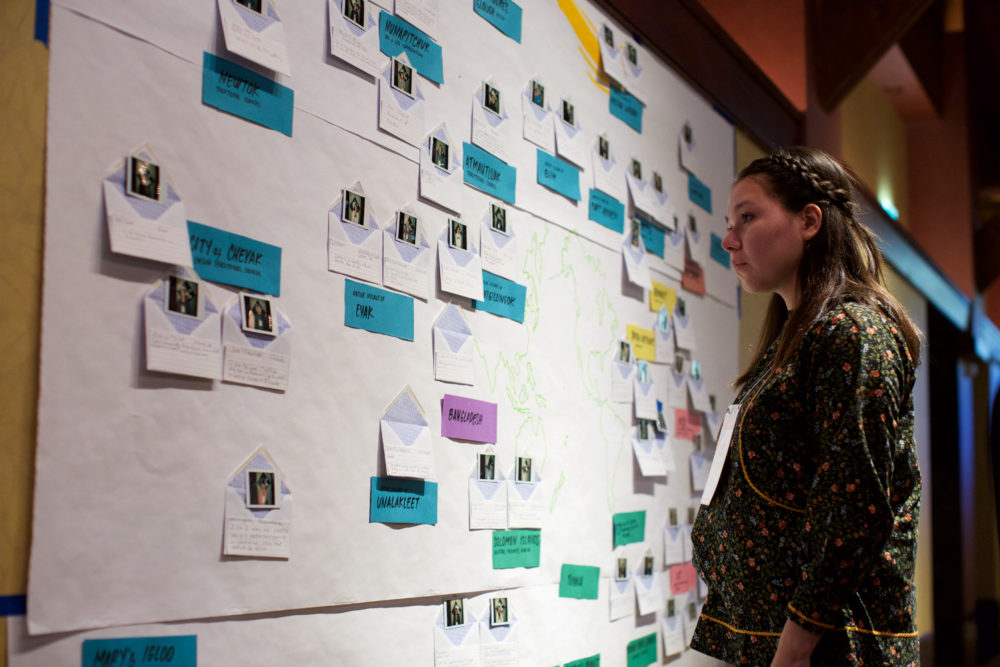
On Monday, October 1, we started our first afternoon together in Anchorage, Alaska. Community leader Pelenise Alofa, a staff member with UUSC partner Live and Learn Kiribati, gave a powerful interview with Alaska Public Media, sharing her personal experiences and observations on the impacts of climate change on her home and communities on the Pacific Island of Kiribati.
That evening, we had an opening reception where Alaska natives officially welcomed UUSC and its partners to the area, and in turn, our Pacific Island partners had their own ceremony, where they presented gifts to tribal elders as a way of acknowledging and showing appreciation for their hospitality.
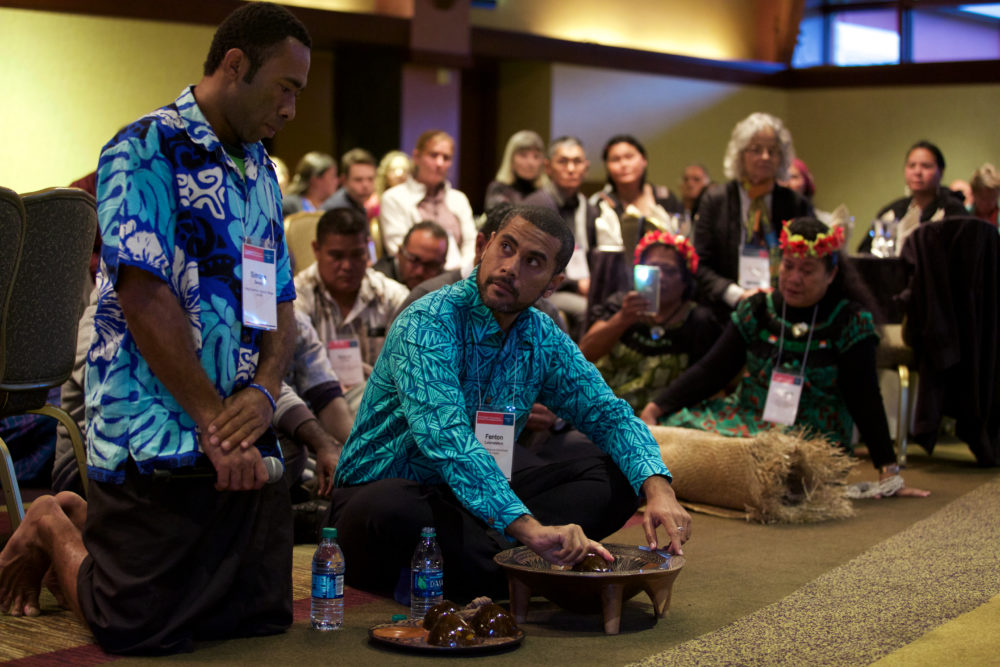
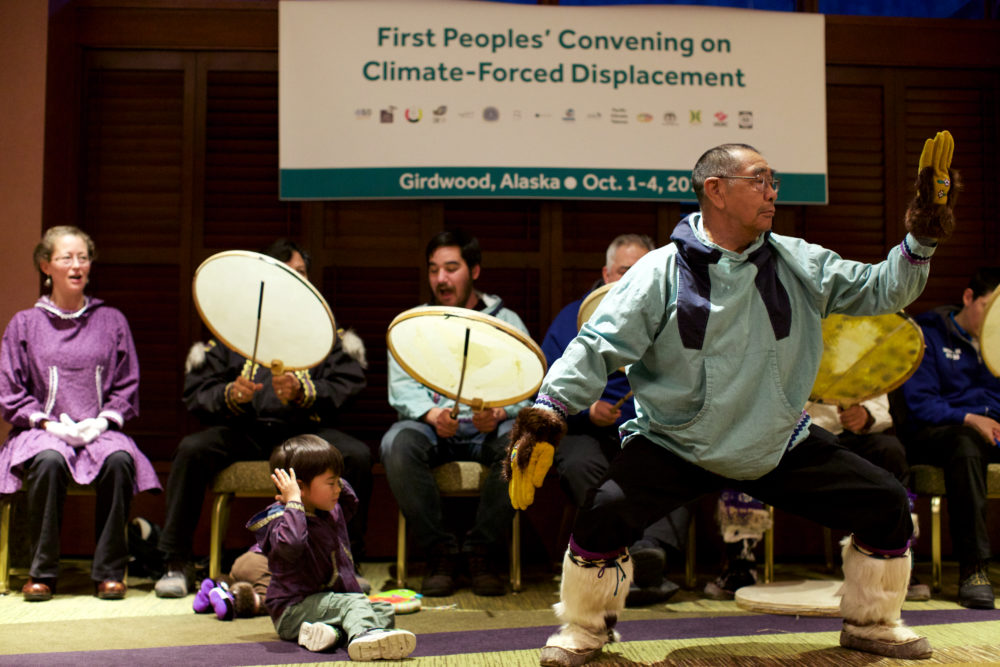
The next day, the real work began.
Conscience
Tuesday, October 2, was devoted to providing a shared space where UUSC and its partners could convene and actively listen to stories about the impacts of climate change. There were 28 group presentations throughout that day. Our partners shared harrowing stories that captured their lived experiences of adaptation and displacement:
- Entire communities at risk of falling into rivers, oceans, and bays as soil erosion gradually devours their land;
- Salt water from the ocean contaminating fresh water supplies;
- People with disabilities being overlooked in community planning processes to address climate change; and
- Entire villages and landowners forced to relocate and families torn apart as farmlands are flooded.
We listened with our heads, but also with our hearts as we heard these stories, and their striking similarities, from Tuvalu in the Pacific to the Quinault Nation in Washington State to Port Heiden in Alaska.
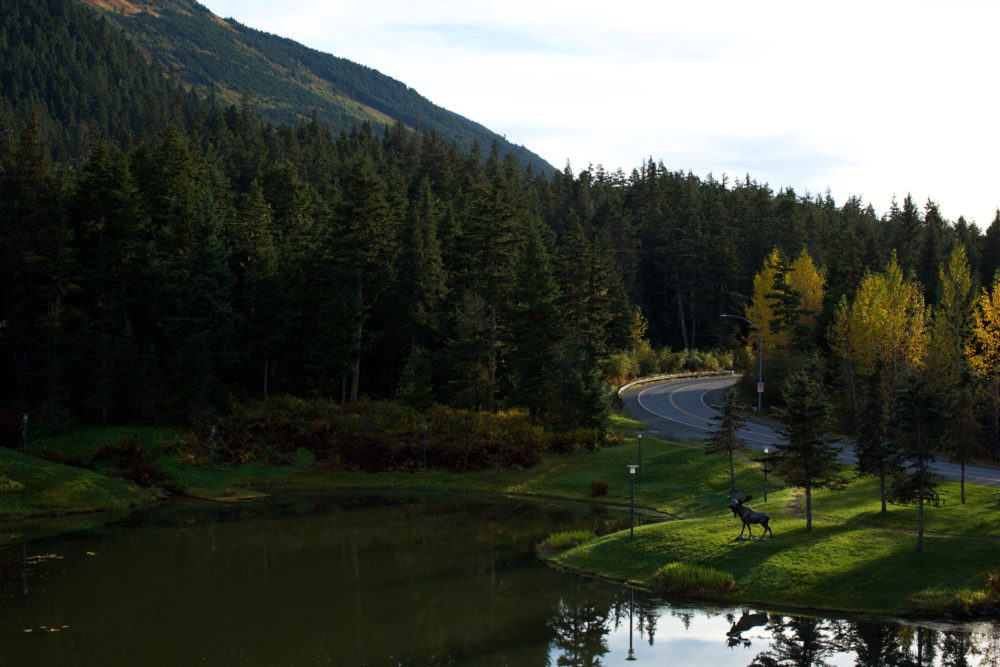
Coalescence
Wednesday, October 3, saw our groups discussing the commonalities between different communities tackling climate change. We wove together a narrative that highlighted key themes that we saw across all of the communities:
- The anxiety and heartbreak that comes with being displaced;
- The loss of cultural practices and identity that comes with having to relocate;
- Frantic strategies to adapt to climate change by building sea walls to stop flooding or planting new crops to replenish family income due to flooding; and
- Strong reflections on the need to listen to the warnings of our ancestors about the changing climate and the need to pass on a healthy, sustainable earth to future generations.
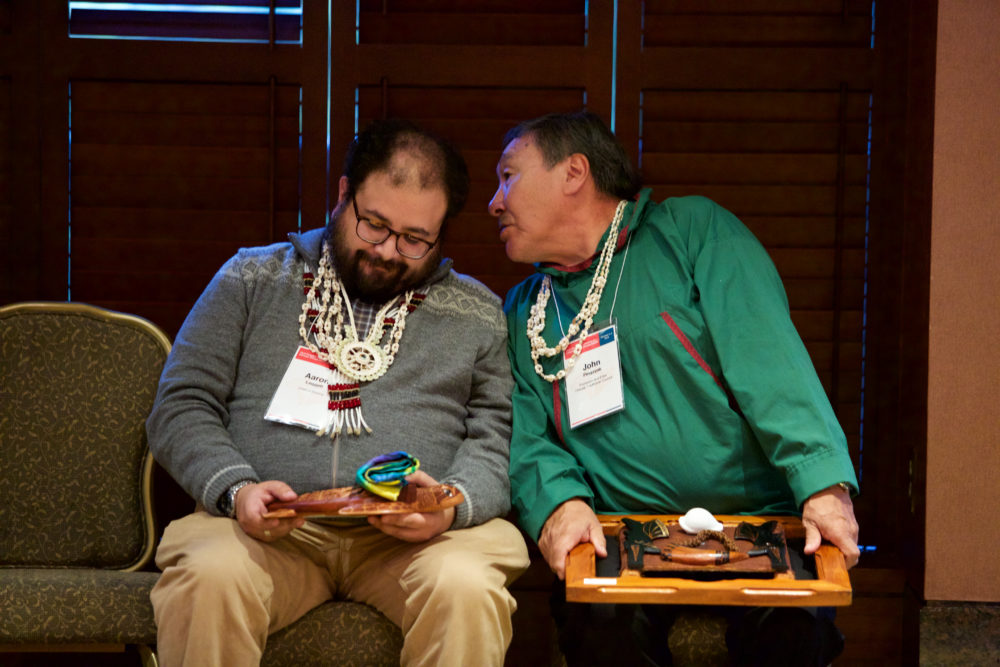
Collaboration
On our final day, we used the energy created throughout the convening to draft a set of concrete principles that will guide our work going forward.
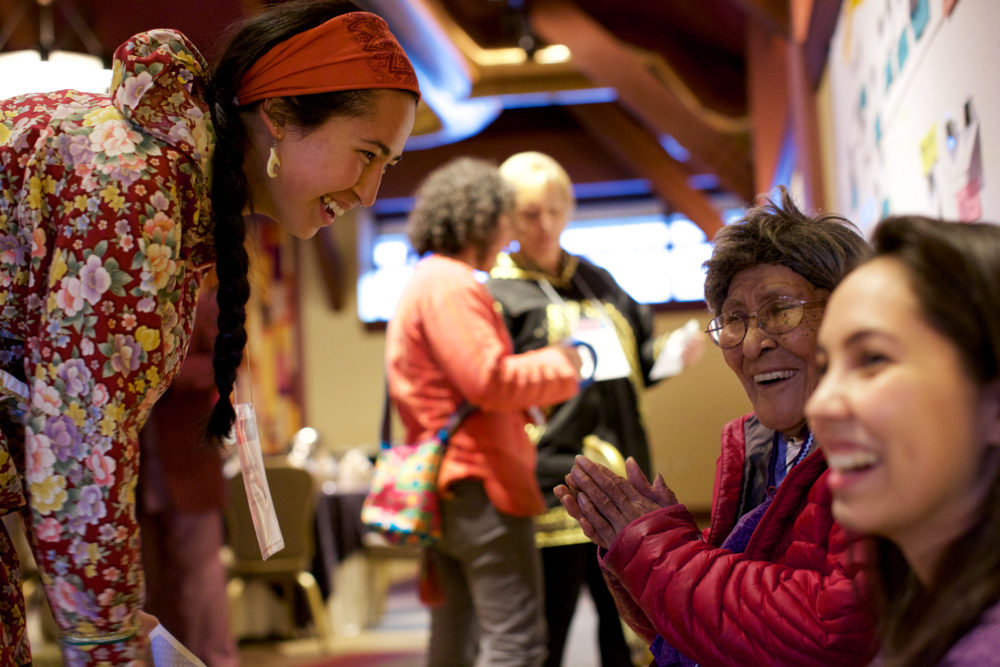
In a large group session, a working team composed of about a dozen participants presented a document with a set of shared principles that will be used to inform our advocacy and partnership work in the future. We’re still collecting feedback on that declaration of principles, and as soon as they are finalized, we will share them with you and provide more concrete steps on how you can get active to support our partners!
